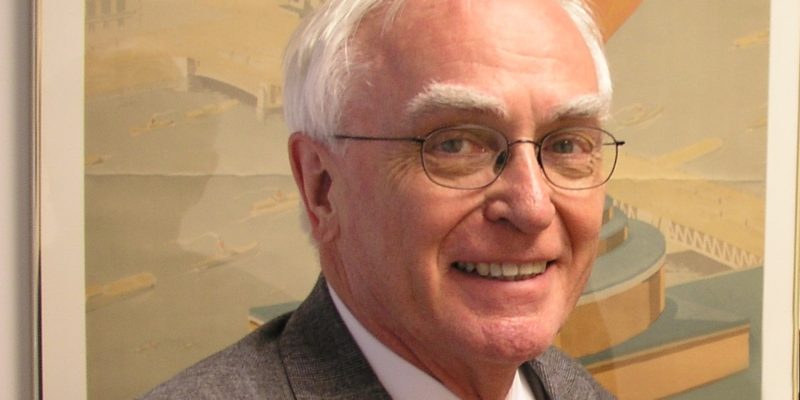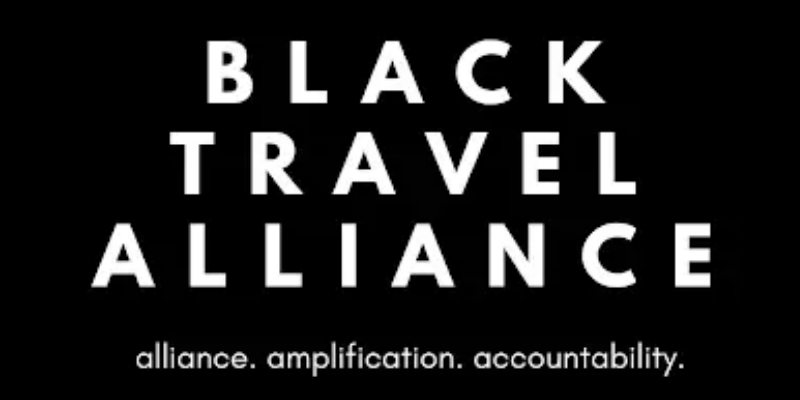ATA’s Anti-Racism Plan In early June, we stated our commitment to stand in solidarity with Black communities. We committed to unearthing and unlearning our inherent biases as an organization and to listening to the voices of Black colleagues, students, and travelers in educational travel. Our goal is to become a more anti-racist organization. We write today to share our Anti-Racist Action Plan and the first steps towards putting these commitments into action. We deem this to be a social justice plan, designed to support and guide our part in righting a wrong in our society and our world. We hope that by working towards full diversity, equity, and inclusion in our organization and our programs that we will better serve our students, travelers, employees, and communities. We know that as we evolve in this process, we will be a better partner to you and provide a more enriching educational experience for our students and travelers. As our industries recover from the impacts of the global pandemic, we have a rare opportunity to build back better. We can shape our organizations and our programs in a post-pandemic era with diversity, equity, and inclusion at the center—not the periphery— of everything we do. Our 10-year plan helps us focus on concrete actions that will allow us to do this as we rebuild and begin to welcome students abroad again in the future. Putting Our Commitments Into Action Every department at ATA contributed long-term action items and goals to the plan. Each Director will be held responsible for achieving these goals. The plan, the deliverables, and action items will be reviewed yearly. As we work towards these goals, we will update you on our progress and new initiatives that have been born as a result of this work. Actions to Transform our Workplace Hire and retain more People of Color, with the goal of having a staff that is more diverse in each racial/ethnic category. Identify and remove barriers that might be impacting our ability to hire more candidates of color. Conduct a yearly audit that focuses on retention of employees of color, and make recommendations that will enhance our retention of these employees. Continue organization-wide discussion sessions at least three times annually on racism and inequity in the U.S. and abroad. Actions to Transform our Programs Overtly include DE&I considerations in program goals, descriptions, and curricula. Create, provide, and update yearly resources for students and travelers that forefront DE&I considerations, such as information on race and racism in the countries in which we operate. Conduct a yearly audit of print and digital marketing materials that focuses on looking at our materials through the lens of diverse student experiences. Actions to Transform our Industries Commit to increase the number of People of Color-owned businesses, vendors, restaurants, hotels, venues, and tour staff we work with wherever possible within the U.S. and in foreign destinations. Continue our strong support of the Fund for Education Abroad. Support National Tourism Association (NTA) efforts to increase diversity and inclusion efforts in travel. This Anti-Racism plan extends out as far as 2030, and yet it is also just the beginning. Creating this plan required taking a hard look in the mirror, and implementing it necessitates organization-wide, sustained action. By establishing clear metrics and building mechanisms such as annual reporting and reviews into the plan, we hope to achieve this sustainability. We want this work to become an integral part of who we are and what we do. We want these actions to be woven into the very fabric of our organization, so that the work of this plan will be viewed by internal and external stakeholders alike not as an “add-on” series of steps, but instead as a key component of the ATA workplace. By achieving the goals we have set in this plan, ATA will establish a solid platform from which to extend the plan’s continuation, one that aims even higher, when the next decade arrives. In early June, we stated our commitment to stand in solidarity with Black communities. We committed to unearthing and unlearning our inherent biases as an organization and to listening to the voices of Black colleagues, students, and travelers in educational travel. Our goal is to become a more anti-racist organization. We write today to share our Anti-Racist Action Plan and the first steps towards putting these commitments into action. We deem this to be a social justice plan, designed to support and guide our part in righting a wrong in our society and our world. We hope that by working towards full diversity, equity, and inclusion in our organization and our programs that we will better serve our students, travelers, employees, and communities. We know that as we evolve in this process, we will be a better partner to you and provide a more enriching educational experience for our students and travelers. As our industries recover from the impacts of the global pandemic, we have a rare opportunity to build back better. We can shape our organizations and our programs in a post-pandemic era with diversity, equity, and inclusion at the center—not the periphery— of everything we do. Our 10-year plan helps us focus on concrete actions that will allow us to do this as we rebuild and begin to welcome students abroad again in the future. Putting Our Commitments Into Action Every department at ATA contributed long-term action items and goals to the plan. Each Director will be held responsible for achieving these goals. The plan, the deliverables, and action items will be reviewed yearly. As we work towards these goals, we will update you on our progress and new initiatives that have been born as a result of this work. Actions to Transform our Workplace Hire and retain more People of Color, with the goal of having a staff that is more diverse in each racial/ethnic category. Identify and remove barriers that might be impacting our ability to hire more candidates of color. Conduct a yearly audit that focuses on retention of employees of color, and make recommendations that will enhance our retention of these employees. Continue organization-wide discussion sessions at least three times annually on
Blog
Introducing ATA’s Comprehensive Traveling Again Plan
Introducing ATA’s Comprehensive Traveling Again Plan On August 6, 2020 the Department of State lifted the Global Level 4 Health Advisory, almost six months after it was initially put in place on March 19, 2020. While the United States continues to see a surge in new cases – a fact that has led many countries to prohibit American arrivals – the lifting of the Global Level 4 health advisory is a step in the right direction. It also happens to be Step 1 in our detailed plan for returning to travel. While this crisis is unique in many ways, it is only one of many that ATA has managed during its 70 year history. From nuclear meltdowns and natural disasters to wars and terrorism, ATA’s risk management mettle has been thoroughly tested. As we set to work on the plan, we began with a set of guiding principles: Safe and enjoyable travel is possible even before a COVID19 vaccine is widely available. By adopting the World Tourism and Travel Council’s safety protocols, ATA joins other travel companies, governments, health experts and industry associations to develop meaningful action plans to optimize recovery efforts in the travel industry. Our travelers will place greater value on health than on individual freedom when traveling in the COVID19 era. This means that we will ask each traveler to abide by a code of conduct that protects his/her safety as well as the safety of fellow travelers, trip leaders, in-country hosts, and others. Wise destination choices and clear communications to travelers are paramount. We’ve shared our thoughts about how important it is to communicate during a crisis; we also believe that wisely selecting destinations with fewer health or safety risks will speed our overall recovery. Click here to read our comprehensive return to travel plan. We can’t wait to get back out there with you!
Arena Stage in Cuba: Uncovering Inspiration
Arena Stage in Cuba: Uncovering Inspiration In 2020, Arena Stage was slated to produce Eduardo Machado’s Celia and Fidel. Having traveled to Cuba in the past, Arena Stage Director Molly Smith, jumped at the opportunity to invite donors and board members to Cuba to explore the inspiration behind the play. Arena’s goal in going to Cuba was to give patrons the opportunity to see first-hand how creatives conducted pre-production research. By choosing Cuba as the destination, donors received an authentic glimpse into this research by meeting with people in the industry and visiting some of the very places shown in the play. Had they taken a “typical” NYC or London theater trip, they would have simply attended shows without taking a deep dive into the creative process or experiencing the destination, which is vital in bringing a play to life. Our Program Team, in consultation with Molly Smith and the playwright, Eduardo Machado, designed the perfect program for Arena Stage. What they got was an experience unlike any other. The group visited the Film School of San Antonio de los Baños for an exchange with students and teachers; learned about the training of performing and visual artists in Cuba at Instituto Superior de Arte; engaged in an exchange with musicians and independent artists on a visit to the Hermitage of Monserrate with the Miguel Failde Orchestra; visited the performing arts center, Danza-Retazos and learned about their cultural project and community work; and took a guided tour of the Museo de Revolución where the group was immersed in the historical context of post-revolutionary Cuba and the political setting of Celia and Fidel. The visits on this tour spoke directly to Arena’s mission without being directly related to theater and seeing plays. Cuba provided the backdrop for the play and allowed the playwright to talk about his history growing up in Cuba and share his inspiration for writing the play. The donors and board members enjoyed a truly unique experience in Cuba, which provided the space for a sustainable travel program rooted in season programming. With these trips, sponsors of the theater are able to have deeper engagement with the creatives and a greater window into how theater is made. The Arena Stage trip to Cuba was a huge success, and ATA is already planning future trips with Arena around production of upcoming plays.
A Tribute to David T. Parry, former owner and Chairman Emeritus of Academic Travel Abroad
A Tribute to David Parry Dave Parry, a born educator, had a career in academics before acquiring Academic Travel Abroad in 1972. An eternal student, he was driven by an intense intellectual curiosity and thirst for knowledge, and devoured books to seemingly no end. Once at ATA, the teacher within continued to emerge as Dave reliably instilled solid values of respect, integrity, loyalty, and strength in all he hired and trained. But the teaching didn’t end there. Those of us who were lucky enough to travel with him quickly discovered Dave’s “inner study leader”—we became diligent students as he lectured on World War II, the Czars of Russia, the Cold War, East Berlin, the economic principles of John Maynard Keynes, and so much more—all while hiking a mountain or hopping on a train. And so it is fitting that Dave Parry holds a place in ATA’s history that is as great and venerable as the larger-than-life historical figures he knew so much about. He was a “lion of a man,” in every respect. Dave was also a natural diplomat, always masterfully communicating (even through interpreters!) and managing to find common ground during the most difficult of meetings. His ability to navigate a cultural divide was a testament to his respect and appreciation of humanity and all its diversity. Whether it was downing a glass of vodka at 10am to celebrate a Russian ship captain’s birthday or urging a Chinese Vice Premier to lower prices post-Tiananmen Square, Dave charmed and persuaded with a keen sense of humor that translated into every language. Hiking mountains with Dave was when you would see his inner child emerge, full of wonder and mischief! His eyes sparkled and his pace quickened as he embarked on a hike, eager for adventure. All his worries melted away as he stood in awe before vistas of sparkling mountain lakes, verdant rolling pastures and meadows of wildflowers against brilliant blue skies. While most hikes were official R&D for the business, these adventures into nature were also how Dave re-charged and was able to power through the stresses of leading a travel company. Dave possessed a warmth and caring that everyone who has worked for him had the chance to witness. He often went above and beyond what any employer is expected to do to help someone in need—allowing telecommuting after the death of a parent (at a time well before telecommuting was permitted or even acknowledged by most companies), offering to share his 65th birthday with a free hike for a few lucky lottery winners, providing personalized travel guidance to an employee embarking on a honeymoon, allowing all staff to leave work to attend the funeral for a colleague’s father, and more. And then there is his resilient legacy at Academic Travel Abroad. With his brilliant wife, Susan, Dave built an organization that has thrived for 70 years through thick and thin. Since the early days of faculty-led student trips and Pan Am charters to Europe, ATA has now become a powerhouse of educational travel programs that span the globe and serve a variety of organizations and demographics. Dave led the company through many ups and downs, from OPEC and Chernobyl to Tiananmen Square and the Gulf Wars, from 9/11 to the Great Recession. A few weeks before his passing, Dave called Kate Simpson and noted “I was born in 1933, and this is the WORST I have ever seen!” referring to the current pandemic. But even then, he knew ATA would prevail and thrive again. Like Dave himself, ATA is a versatile, nimble organism that thrives on change and challenges. 2020 is Dave’s 87th year and ATA’s 70th. Through our work, we celebrate him. The legacy continues.
The Time is Now to Plan for Post-Pandemic Success
The Time is Now to Plan for Post-Pandemic Success Travel industry experts and psychologists agree that once the COVID-19 pandemic is managed, human beings will travel again, with more enthusiasm and abandon than ever before. Travel, mobility, exploration, discovery, encounters—these are all essential and compelling human needs. While crisis management may be your main focus right now, mid-pandemic, brands who take this time to not only deal with the situation at hand, but also create plans to prepare for the future will find themselves benefitting from the pent-up demand and weakened competition when the world is hungry for travel again. After 70 years of experience and unwavering stability through several crises, ATA is well-positioned to establish and support your experiential brand extension to generate revenue and deepen consumer relationships as the world rebounds. Whether you are launching a brand-new travel program or re-evaluating offerings for your existing brand, now is the time to take action, and we are here to guide you along the way. Travel Planning Timeline for Post-Pandemic Success NOW Evaluate destinations that might appeal to your audience. Narrow down your list and focus on a 60/40 breakdown of domestic vs. international destinations. Domestic destinations are generally perceived to be lower-risk following a large-scale crisis. There is also an expectation that domestic travel will return more quickly than international travel, as travelers test the waters closer to home. ATA can help guide you through this process and will ultimately develop detailed proposals to present for final consideration, complete with pricing. In the next 3 months Finalize selections for your portfolio of trip offerings and bring marketing on board. Build your ideal marketing plan to be ready for launch when timing is right. For new travel brands, this plan should include a high-level promotion for the launch of your new travel program as well as a deeper dive into the inaugural series of trips. For existing travel brands, your marketing efforts should focus on why certain destinations were chosen and what you are doing to ensure safety for travelers on the ground. Regardless of whether you are launching a new travel brand, or new trips for the coming year, this marketing plan needs to cover all possible marketing channels, from email and web to newsletters, signage, social media, and any other channels already used by your organization. As you create your marketing strategy, ATA is happy to collaborate and advise. Early Fall 2020 Once a marketing plan is in place, it is time to start building out creative assets that will ultimately be needed for launch. For new travel brands, now is the time to get creative—establish a logo, custom branding, and a website for your travel initiative. For new or existing brands, other creative assets to consider are digital brochures and other graphics to be used in emails, on social media, and in promotion. ATA has an in-house design team to support creative efforts if collaboration throughout the process is desired. Fall 2020-Spring 2021 Now that you have a solid foundation in place – trips planned, marketing efforts ready, and a website, logo, and other creative assets established– it is time to watch and wait for ideal marketing conditions to announce your travel program, or new trips, into the marketplace. As with anything, timing is essential. As an active member in several travel organizations and with employees across the globe, ATA is keenly following the market to ascertain the perfect timing. Now is the time to take action and be prepared for the travel resurgence. There is huge opportunity to be seen as a leader in the recovery of the travel and hospitality industry and travelers will be yearning to explore the world again when it is safe.
Juneteenth, #PullUpForTravel
Juneteenth, #PullUpForTravel On this Juneteenth, we support the Black Travel Alliance and respond to their call to #PullUpforTravel. Academic Travel Abroad provides cultural and educational group travel experiences for leading media, cultural, and educational institutions in the US. We also operate study abroad programs for high school, gap, and college students through our study abroad division, CET Academic Programs, and organize delegations of professionals for international exchange through our brand Professionals Abroad. Compiling the data for the following applicable KPIs was an important exercise for us as an organization, and we share it transparently as part of our ongoing commitment to confront systemic racism in our own work. Employment Current number and percentage of Black people in management and on staff. Staff 6 out of 82 (7%) Managers 3 out of 62 (5%) Paid Advertising/Marketing Campaigns Black representation (number and percentage) in TV, radio, print and digital channels including social media in 2019. CET featured Black students and Black student-created content in 36 out of 92 social media posts (39%) from 2017-2020. 1 of 4 Instagram takeovers were hosted by Black students in 2019. CET features 366 photos showcasing students across 40 web pages marketing our study abroad programs. Of the 366 photos, 58 (15.85%) featured Black students. *Academic Travel Abroad does not run paid advertising or marketing campaigns for its programs created for partner organizations. Philanthropy Charitable contributions and support (i.e. mentorship and intern programs, etc.) to Black charities and community groups. ATA has donated $1.6 million to the Fund for Education Abroad (FEA) since its inception in 2010. FEA’s mission is to diversify participation in study abroad by providing scholarships and support to minority, first-generation, and high financial need students. 30% percent of FEA scholars are Black while only 6% of the general study abroad population is Black. In evaluating this data, we recognize that we have work to do in improving Black representation on our staff, in our management, and in our marketing campaigns. Moving forward, we intend to use these KPIs as a starting baseline for action as we take real steps toward racial equity within our own organization.







